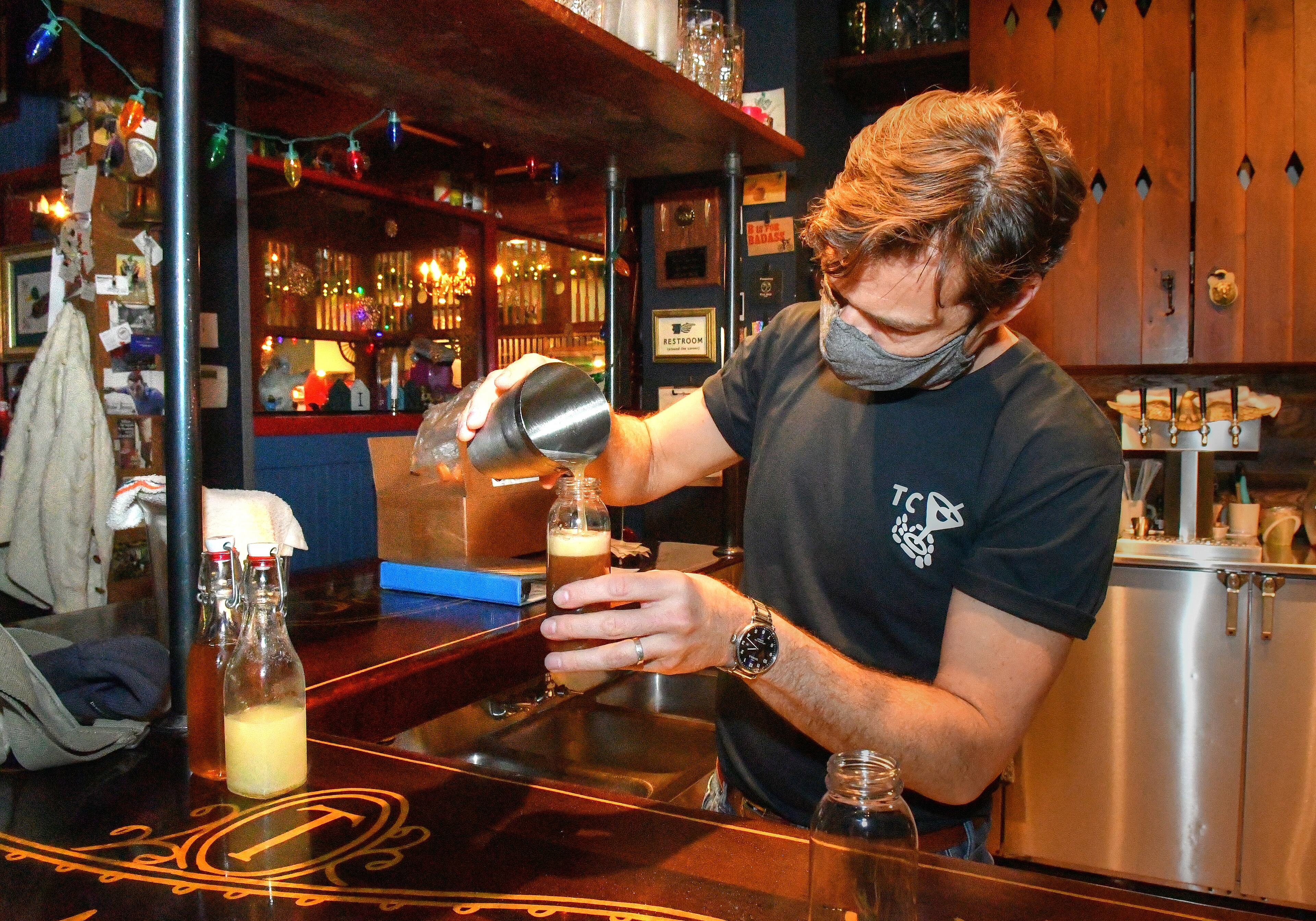A look at major COVID-19 developments over the past week

Here we go again. Another holiday season, another COVID-19 surge looming.
“It’s very frustrating,” Shantai Smith said Tuesday as she waited to take a COVID test in a line of dozens of cars that spilled into traffic out of the parking lot of Decatur’s First Alliance Church. “It makes it feel like we’re never going to get out of this.”
Despite all the progress made this year with the rollout of highly-effective mRNA vaccines and the availability of boosters, Georgia will be a sitting duck in another winter wave because almost half of the state hasn’t even taken their first shots.
Public health experts fear that the combination of the delta variant, the quickly-spreading and highly-transmissible omicron variant, and families gathering indoors will see hospitals overwhelmed all over again early next year, threatening every Georgian’s ability to receive medical care.
More and more dire news poured in last week with as the seven-day rolling average of confirmed and probable new cases quadrupled since the start of the month. Atlanta Mayor-elect Andre Dickens tested positive. Atlanta’s sitting mayor reinstated a citywide indoor mask mandate. CNN closed offices nationwide to everyone but essential workers and reverted to 2020 COVID protocols.
Meanwhile, state leaders offered few ideas for blunting the surge, other than to keep pushing a message of individual responsibility: Get vaccinated and boosted. Wear a mask in indoor public settings and socially distance by six feet. Wash your hands. If you feel COVID symptoms or are exposed, get tested. If you’re sick, stay home.
“The state is really going to have very little that they can actually do,” said Carlos del Rio, a professor of global health and epidemiology at Emory University’s Rollins School of Public Health. “If you’re not vaccinated now, you’re not going to be protected. So it’s too late.”
There is some cause for optimism, though. While epidemiologists say omicron spreads much more easily than previous variants, there are early indications that fewer people will become seriously ill and the hospital admission rate is lower.
Here’s a look at major developments over the past week related to COVID-19.

Testing sites see record traffic
In a flashback to scenes from earlier in the pandemic, Georgians are once again getting tested for COVID-19 in droves. Long lines at testing sites were among the most visible signs that a holiday season many had hoped would be “normal” will once again be colored by COVID-19.
Viral Solutions — a local company that runs 18 testing and vaccination sites across Georgia — said it performed about 5,500 tests Monday, the most administered since the company began testing in August 2020, according to its co-founder and president Ron Sanders.
Not only are huge numbers of people getting tested, they are testing positive at alarmingly high rates. Positivity rates at Viral Solutions’ sites were hovering at around 25%, Sanders said Tuesday, the highest he said he had seen yet.
Wait times for tests at some Viral Solutions locations were as long as two hours Monday, Viral Solutions’ other co-founder and CEO Dr. Benjamin Lefkove said, but most averaged around 45 minutes.

Omicron surge could overwhelm hospitals again, leaders fear
Georgia hospital officials say they’re bracing for another wave of COVID-19 cases.
“I think we’ll be overwhelmed again,” Monty Veazey, president and CEO of Georgia Alliance for Community Hospitals, said Tuesday. “Our issue is manpower. It’s a big issue. We’re all lacking manpower.”
Dr. John Delzell, vice president and incident commander for the Gainesville-based Northeast Georgia Health System, said he’s concerned because his hospital still doesn’t have the last delta surge fully behind it.
“It never really got down to what we would think of as a valley in between the peaks,” he said.

COVID-19 surge hits restaurants hard
Last weekend, nearly two dozen metro Atlanta restaurants temporarily closed due to positive COVID-19 cases among staff.
Supremo Taco, Bread and Butterfly, 8Arm and Ticonderoga Club were among the dining establishments that abruptly announced they would be closed during what is typically one of the busiest periods for restaurants.
Supporters of Local Three received an email midday Saturday from chef-partner Chris Hall notifying them that the fine-dining restaurant in Vinings would not open that evening.
“It’s terrible timing,” Hall told The Atlanta Journal-Constitution. “Guests who had a Christmas party set up for months, they are disappointed. We’re disappointed. This was one of the biggest weekends of the year.”

Gov. Kemp not yet planning to take additional measures
In another example of what’s old being new again, Georgia’s leaders were offering few ideas last week on how to head off the omicron threat.
Gov. Brian Kemp struck an optimistic tone at an Atlanta Community Food Bank event on Monday. Kemp, who has been criticized this year for his resistance to mask and vaccine mandates, said omicron doesn’t seem as potent as the delta variant, and that he had spoken that morning with Public Health Commissioner Kathleen Toomey and they will “continue to monitor.”
Asked if any new measures will be taken, Kemp said, “Not at this point. I think from looking where we are, we’re still holding our own.”
Kemp’s stance risks the lives of Georgians, said Amber Schmidtke, a public health researcher who has been tracking Georgia’s cases. Statewide mask requirements and limits on the size of gatherings could all work to slow what could be a “massive disruption” to the operation of schools, commerce and hospitals, she said.
“Georgia is wasting precious time to prepare for what is coming,” she said.
Kemp also said hospital leaders have told him they can handle what’s ahead.
“They’re telling me if we can hold on until the end of the year and get past that, they feel like they’ll be in good shape for a while,” the governor said. “But we’re ready to help wherever needed.”
Staff writers Ligaya Figueras, Yvonne Zusel, Willougby Mariano, Wilborn P. Nobles III and Rodney Ho contributed to this article.
OMICRON AND VACCINES:
33%: Pfizer vaccine effectiveness against infection with omicron variant
70%: Pfizer vaccine effectiveness against hospitalization due to omicron variant
38 times more: A booster shot’s increase of vaccine effectiveness against omicron, either Pfizer or Moderna, in a laboratory study
Sources: Discovery Health via White House briefing and Rockefeller University preliminary study





